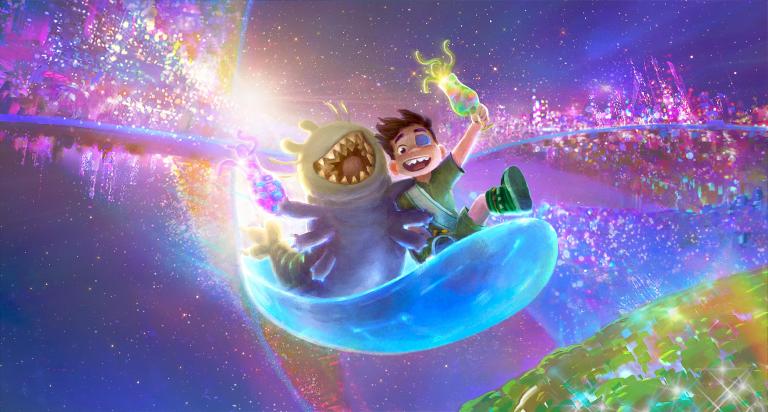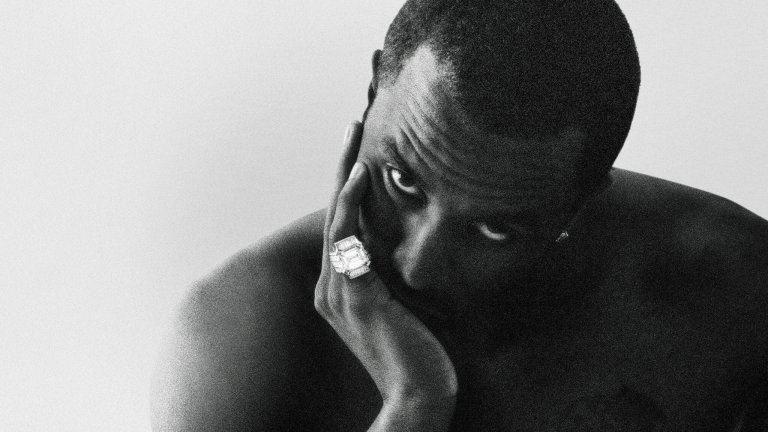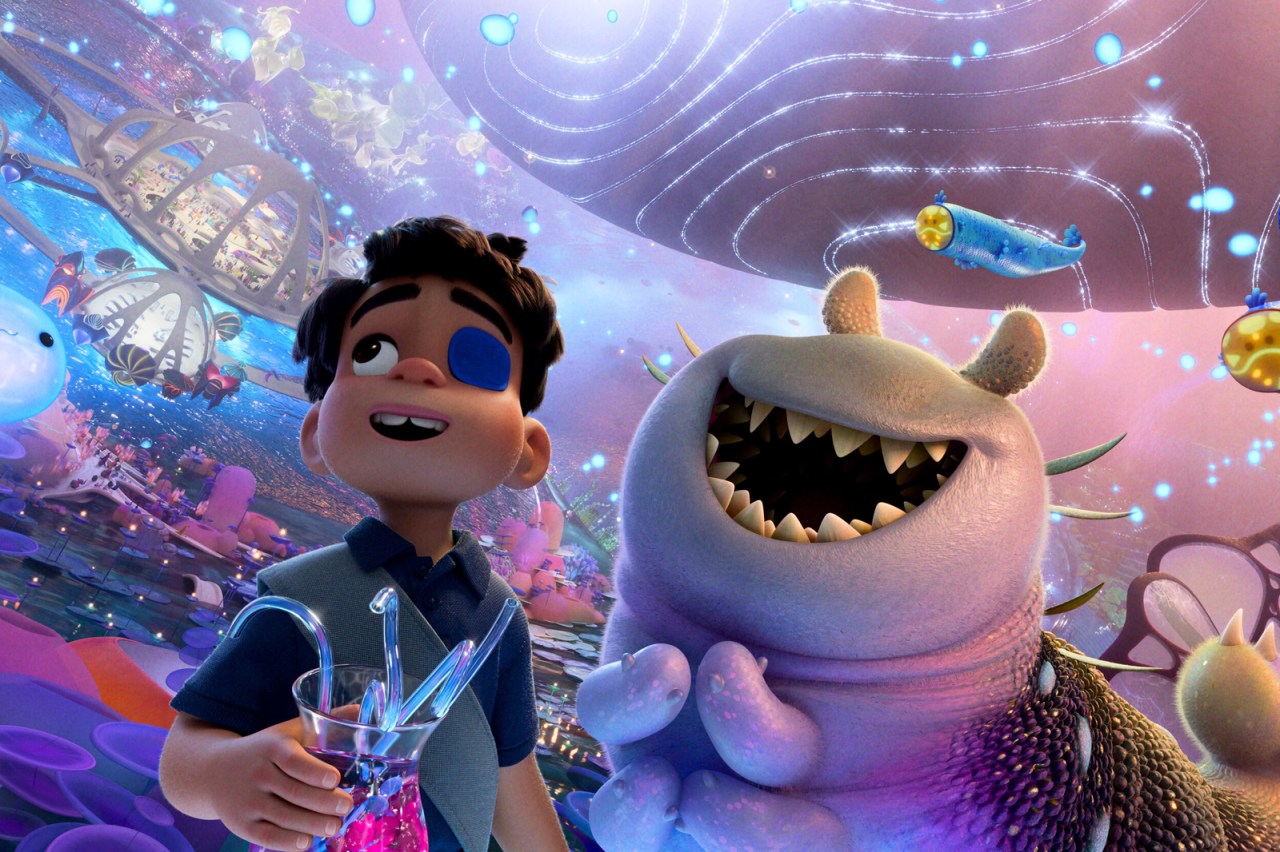
How Did Pixar Manage To Release Its Most Political Film Yet—In The Middle Of Disney’s Identity Crisis?
It’s no secret that Pixar has a long track record of incorporating adult themes into animated films marketed toward children—what once felt like a magic trick is now built into audience expectations—but the studio’s latest release, Elio, marks an interesting departure from strictly emotional fare into territory that is decidedly politically charged.
This is especially surprising given Disney’s ongoing political identity crisis, which, in many ways, is part of a larger, clumsy corporate reckoning with growing polarization in American politics.
How did we get here?
Back in 2022, Disney went to bat with Ron DeSantis over Florida’s Parental Rights in Education Act, also known as the “Don’t Say Gay” bill, leading to a legal tug of war between CEO Bob Iger and the Republican Governor over Disney’s special self-governing status. While the lawsuit was eventually put on hold in favor of a settlement, the conflict featured heavily in news circuits and drew polarized consumer response.
Following these and other high-profile conflicts, including a $16 million defamation lawsuit with Donald Trump, Disney has attempted the seemingly impossible—to walk an ideological tight-rope in the pursuit of appeasing their wide consumer base—but in practice this has manifested in a zig-zag or see-saw effect, where seemingly progressive moments are followed by conservative back-peddling.
For example, 2021’s Luca was widely read as a queer film depicting a relationship between two sea monsters posing as human boys in a coastal Italian town, but the official line from Disney was that the storyline was a “metaphor for feeling different”.
Fast-forward to 2022’s Lightyear, which drummed up controversy of its own for a kiss between two lesbian characters that saw the film banned in several countries, only after it became a rallying point for Disney employees who pushed back on executive plans to have the scene cut from the film.
By the time 2024 rolled around, ex-employees were speaking anonymously to IGN over pressure they received to “avoid LGBTQ themes” in general, including requests to make Inside Out 2‘s Riley appear “less gay”.
Meanwhile on the DEI front, Disney has scaled back various corporate initiatives, rewritten content warnings for controversial legacy titles, and dealt with a PR nightmare over promotions for its live action Snow White remake. Shareholders, on the other hand, voted overwhelming against a proposal to withdraw the company from the Human Rights Commission’s annual Corporate Equality Index, with only 1% voting in favor of the initiative.
So what does this tell us about Elio?
How Adrian Molina’s wildly political and semi-autobiographical concept for Elio ever slipped past the kind of scrutiny Disney studios are currently facing is a complete enigma. One could speculate he’s been given a corporate blessing following the success of earlier projects like 2017’s Coco, whose sequel led to Molina’s replacement as lead director on Elio mid-development. Or perhaps, its merely a question of timing— animated films take several years to produce from start to finish, and approvals likely pre-date the current political climate.
Inspired by Molina’s isolated childhood growing up on a military base, Elio is, on the surface level, a story of a young boy with low self-esteem looking for a place to fit in. His fixation on alien abduction is a manifestation of his dissatisfaction with life as an orphan cared for by his aunt Olga, an Air Force major who has given up her dreams of becoming an astronaut to raise him.
After disobeying Olga’s orders, Elio sneaks into a command center and sends the equivalent of a voice memo out into space, asking any alien lifeforms to come retrieve him from earth, which of course they do, but unlike popular depictions of alien abductions, these extraterrestrials are benevolent, utopian creatures with a government reminiscent of a Star Wars senate they refer to as the “Communiverse”.
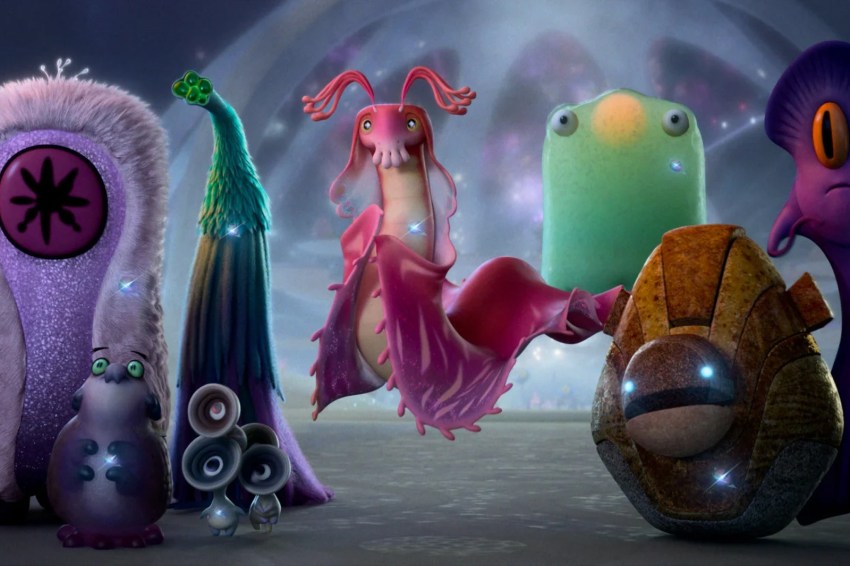
Coinciding with Elio’s arrival, a boisterous Hylurgian warlord, Lord Grigon, is attempting to join said “Communiverse”, but his membership request is ultimately rejected, and he vows to take revenge for the insult. The other ambassadors, who had been preaching a politics of tolerance, fearfully retreat from the conflict, with no one offering to stand up to the bellicose bully. Elio volunteers in a last-ditch effort to avoid being sent back home and embraces his mistaken identity as Earth’s leader.
What follows is a fun and feel-good story that sees Elio bargain with Lord Grigon using advice that seemingly parodies Donald Trumps’ The Art of the Deal. After the attempt backfires, Grigon’s son, Glordon, agrees to become Elio’s bargaining chip in an attempt to gain his father’s attention.
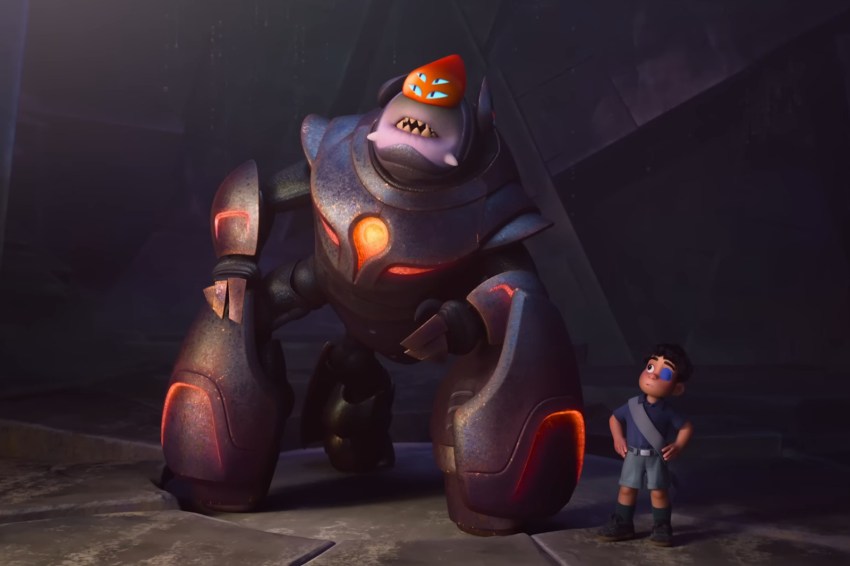
Hylurg is a thinly veiled metaphor for toxic masculinity, the “red pill” community, and the “manosphere”, which Glordon’s character, a worm-like creature, who is “just a kid” like Elio, and loves being swaddled by his mother for comfort, serves as the antithesis to. After a mix-up where Elio mistakes said swaddling for becoming Glordon’s prey, his new alien friend explains Hylurgian culture to him, showing Elio the metal exo-skeleton, or carapace, that all Hylurgians are installed into as a right of passage. The dichotomy between the species’ soft, worm-like interior, and their high-tech, metal, war machine exteriors embodies stereotypical definitions of masculinity that look down on softness as weakness.
The film’s resolution, which sees Grigon exit his carapace and expose his own “softness” to care for a sick Glordon by swaddling and cuddling him, as well as accepting his son’s desire not to become a warlord, is a decided rejection of the conservative ideologies the Hylurgians represent. But Elio also rejects the liberal “Communiverse” (for now) and chooses to return to Earth and live with Olga.

The politics that are endorsed by the film are those of the ham radio community that comes to Elio and Olga’s rescue while they attempt to steer their spacecraft through a debris field. What starts out as enlisting help from Elio’s bullies and Olga’s work colleague turns into a global grass-roots effort to aid the aunt and nephew in a montage of international voices saluting the pair in a variety of languages, before sharing coordinates and trajectories of the incoming debris.
With this move, Disney seemingly rejects both left and right wing politics, Grigon’s war-mongering dictatorship, and the Communiverse’s utopian platitudes paired with inaction, for the democratization of global technology. The irony of the ham radio being that vehicle, in an age where cell phones and TikTok allow people on opposite sides of the globe to share their individual experiences, is not lost on the audience, but its message is clear.
We’ll likely have to wait and see how reception to the film and current events continue to influence the politics of Pixar, which won’t deliver a new release until March of next year with Hoppers, followed by June’s Toy Story 5. How the company evolves alongside public sentiment is very much a fluid process, albeit an interesting and complex thermometer by which to gauge American political realities.
